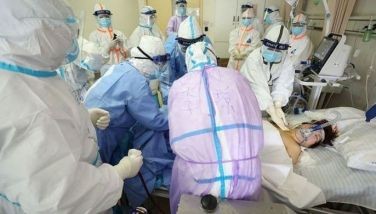Iran, world powers reach deal opening nuke program
TEHRAN — Iran has agreed to open the Islamic Republic's nuclear program to daily inspection by international experts starting from Jan. 20, setting the clock running on a six-month deadline for a final nuclear agreement, officials said yesterday. In exchange, Iran will get a relaxation of the financial sanctions that have been crippling its economy.
The announcement that Iran and six world powers had agreed on the plan for implementing an interim agreement came first from Iranian officials and was later confirmed elsewhere. Some US lawmakers have been leery of the agreement, calling for tougher sanctions against Iran, rather than any loosening of controls.
Iran's official IRNA news agency quoted Iranian Deputy Foreign Minister Abbas Araghchi saying the deal, which sets the terms of a landmark agreement reached in November, would take effect from Jan. 20. The agency said Iran will grant the United Nations' atomic agency access to its nuclear facilities and its centrifuge production lines to confirm it is complying with terms of the deal.
Araghchi later told state television some $4.2 billion in seized oil revenue would be released under the deal. Senior officials in US President Barack Obama's administration put the total relief figure at $7 billion.
Under the November agreement, Iran agreed to limit its uranium enrichment to 5 percent — the grade commonly used to power reactors. The deal also commits Iran to stop producing 20 percent enriched uranium — which is only a technical step away from weapons-grade material — and to neutralize its 20 percent stockpile over the six months.
In exchange, economic sanctions Iran faces would be eased for six months. During that time, the so-called P5+1 world powers — Britain, China, France, Germany, Russia and the United States — would continue negotiations with Iran on a permanent deal.
The West fears Iran's nuclear program could allow it to build a nuclear bomb. Iran says its program is for peaceful purposes, such as medical research and power generation. Iran's semi-official ISNA news agency reported yesterday that under the terms of the deal, Iran will guarantee that it won't try to attain nuclear arms "under any circumstance." However, Araghchi stressed Iran could resume production of 20 percent uranium in "one day" if it chose.
The senior US officials said UN inspectors would have daily access to Iranian nuclear sites and would make monthly reports. Iran will dilute half of its nuclear material during the first three months of the agreement, the officials said, and all of it by the end of the agreement.
In exchange, Iran would have access to parts for its civilian aviation, petrochemical and automotive industries, as well as be allowed to import and export gold, the officials said. The deal also gives Iran access to international humanitarian and medical supplies, though Iran still could not use US banks and the majority of sanctions would remain in place, they said.
The senior US officials spoke on the condition of anonymity because the specific terms of the agreement were not released publicly.
European Union negotiator Catherine Ashton praised the deal in a statement, saying "the foundations for a coherent, robust and smooth implementation ... have been laid." German Foreign Minister Frank-Walter Steinmeier called the deal "a decisive step forward which we can build on."
US Secretary of State John Kerry welcomed the deal in a statement as well, saying further negotiations "represent the best chance we have to resolve this critical national security issue peacefully, and durably."
In a statement, Obama said the deal "will advance our goal of preventing Iran from obtaining a nuclear weapon."
"I have no illusions about how hard it will be to achieve this objective, but for the sake of our national security and the peace and security of the world, now is the time to give diplomacy a chance to succeed," Obama said.
However, US lawmakers are proposing to blacklist several Iranian industrial sectors and ban banks and companies around the world from the US market if they help Iran export any more oil. The provisions would only take effect if Tehran violates the interim nuclear deal or lets it expire without a follow-up accord.
However, that has caused anxiety in Iran, where hard-liners have already called the deal a "poison chalice" and are threatening legislation to increase uranium enrichment. Araghchi also said any new sanctions would halt the deal.
In his statement, Obama said "unprecedented sanctions and tough diplomacy helped to bring Iran to the negotiating table," but cautioned against implementing any more.
"Imposing additional sanctions now will only risk derailing our efforts to resolve this issue peacefully, and I will veto any legislation enacting new sanctions during the negotiation," he said.
- Latest
- Trending






























